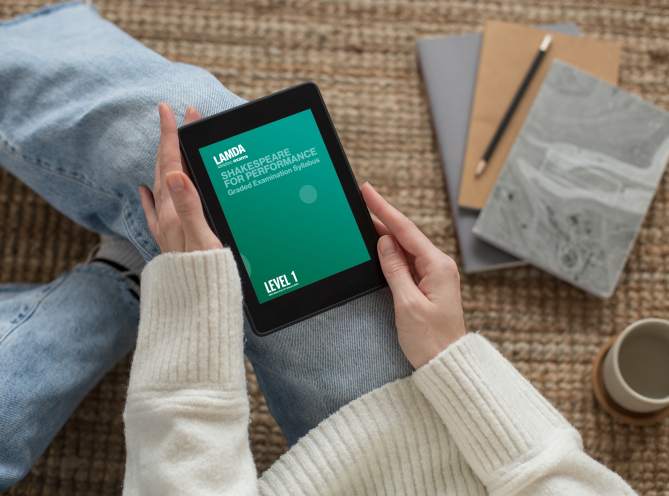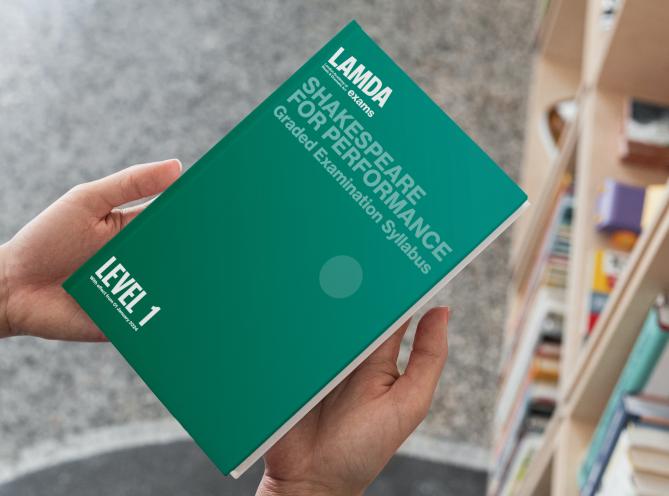New Shakespeare for Performance syllabi
Announcing a new way to approach Shakespeare with LAMDA Exams. We're shaking things up with the newly revised Shakespeare for Performance syllabi. The qualification does away with an academic approach and returns to the fundamental reasons that Shakespeare created these plays...to be performed. The syllabi is available in three levels, featuring set pieces to make teaching the qualification more straight-forward and an ideal addition to existing LAMDA Exams teachers who teach the Acting qualification.
Order your copy of the new Shakespeare for Performance syllabi
Visit our shop to get hold of your paperback copy.

The Shakespeare for Performance syllabi will be dispatched from September 2023, customers will receive a notification when their product has been shipped. The syllabi is valid for exams from January 2024. The free PDF version will be available from September 2023 on the LAMDA website.
While there aren't any strict minimum or maximum age restrictions on our Exams, the below age ranges for the levels can be used for guidance:
Level One: is ideal for those just entering the world of performance (e.g Primary School and under 12s)
Level Two: is aimed at those with some level of performance experience (Early teens)
Level Three: is designed for those with a strong base of performance skills & wanting to develop their Shakespeare skills further (Late teens)
The new LAMDA Shakespeare for Performance qualification will be available for teaching from 1 September 2023, with examinations from 1 January 2024. The last examining date for the current LAMDA Shakespeare Qualification is 31 December 2023. All learners wishing to sit the current qualification must ensure their examination is scheduled to take place on or before 31 December 2023.

At LAMDA Exams, we understand that in an ever-progressing world it can be challenging to find relevance in the work of a writer who wrote so long ago. In the 16th and 17th centuries, Shakespeare was considered something of a revolutionary. Indeed, the ideas he highlighted in his work would have raised more than a few eyebrows in Renaissance era Britain.
And as cutting-edge as they may have been then, the stories of Shakespeare’s plays have not gone out of style. Two teens, from different backgrounds, falling in love (Romeo and Juliet); a family trying to get ahead (Macbeth); a person dealing with grief (Hamlet): the themes in these stories hold as much meaning today as they did almost 500 years ago.
So why perform Shakespeare?
The answer to that is simple: Shakespeare’s words were not written to be read, they were written to be heard. And not solely by the Kings and Queens of the English court, but by everyone.
You cannot fully appreciate Shakespeare’s use of literary devices and figures of speech – such as how Iago’s sibilance speaks to their snake-like cunning – without hissing it aloud.
Through studying LAMDA Exams’ Shakespeare for Performance qualifications, Learners will discover how to use vocal and physical skills to explore language, before moving on to form. Through this practical execution of language and form, they will then aim to unlock character, story and, eventually, theme.
LAMDA Exams’ Shakespeare for Performance qualifications have been designed to take Learners on a journey with Shakespeare: starting with the words and ending, we hope, with a deep and practical understanding of some of the complex, universal and deeply human ideas Shakespeare wanted to share with the world.




